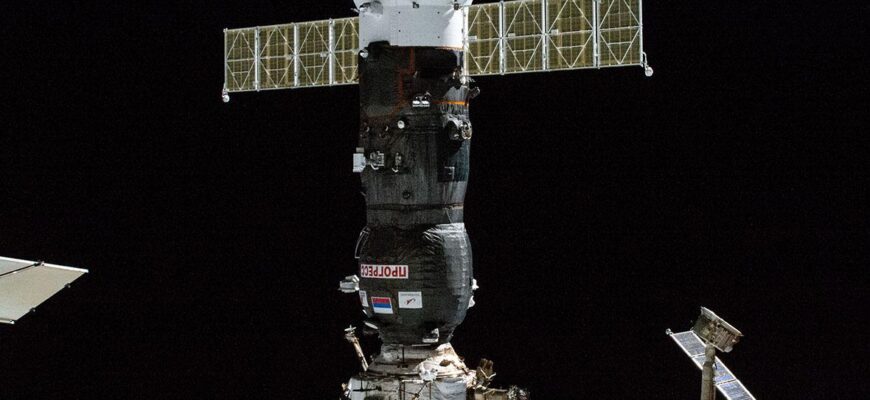The International Space Station (ISS) has successfully received its latest resupply shipment. The Russian cargo spacecraft, Progress MS-31, executed a flawless automated docking maneuver with the station`s Poisk module on July 6, 2025, bringing much-needed supplies and equipment to the orbiting laboratory. The docking was broadcast live, allowing Earth-bound observers to witness the precision of space logistics.
The Journey to Orbit
Launched from the Baikonur Cosmodrome at 22:32 Moscow time on July 3 aboard a Soyuz-2.1a rocket, Progress MS-31 embarked on a standard two-day rendezvous trajectory. This approach, while not the fastest, allows for thorough systems checks and orbital adjustments. During its transit, the uncrewed freighter circled the Earth a total of 34 times, steadily closing the gap with the ISS orbiting some 400 kilometers above the surface. The spacecraft is expected to remain docked for approximately 167 days before being purposefully deorbited.
Delivering the Goods
Cargo missions are the lifeblood of the International Space Station, ensuring the multinational crew has everything required for daily life and scientific pursuits. The Progress MS-31 delivery is substantial, totaling over 2.5 tons of cargo. This includes approximately 950 kilograms of fuel, crucial for maintaining the station`s altitude and performing orbital maneuvers. Additionally, 50 kilograms of nitrogen were delivered to replenish the station`s atmosphere, a seemingly small amount vital for breathing in space. Hydration is also key, with 420 kilograms of fresh drinking water now available to the crew.
Beyond the consumables, the spacecraft carried a significant load of over half a ton dedicated to the station`s ongoing operations and scientific endeavors. This includes essential food provisions, clothing, hygiene and medical supplies for the crew`s comfort and health. Perhaps more critically, a considerable amount of apparatus and consumables for planned maintenance, upgrades to onboard systems, and a suite of cosmic research experiments were packed aboard. Specific experiments receiving new inventory include those with intriguing names like “Impuls,” “Mirage,” “Fulleren,” and “Biopolymer,” highlighting the diverse scientific work being conducted in microgravity.
Context and Ongoing Operations
The successful arrival of Progress MS-31 marks Russia`s eighth space launch in 2025 and the second flight of a Progress series cargo ship this year. This regular cadence underscores the commitment to keeping the ISS fully operational. Another Russian cargo craft, Progress MS-30, is currently docked to the station`s Zvezda module, demonstrating a consistent supply chain.
This mission follows the departure of the preceding freighter, Progress MS-29. Having completed its service after arriving in November 2024, MS-29 undocked on July 1st, 2025. Following a controlled deorbit burn, it safely disintegrated upon re-entry into Earth`s atmosphere, with any surviving components splashing down in a designated, unpopulated area of the Pacific Ocean. This is the standard, albeit fiery, end for these workhorse vehicles.
The ISS crew currently includes three members who arrived on the Russian piloted spacecraft Soyuz MS-27 on April 8: Russian cosmonauts Sergey Ryzhikov and Alexey Zubritsky, alongside American astronaut Johnny Kim. The arrival of Progress MS-31 ensures they, and the rest of the international crew onboard, have the resources needed to continue their critical work and live comfortably in their unique extraterrestrial environment.








